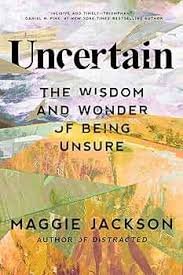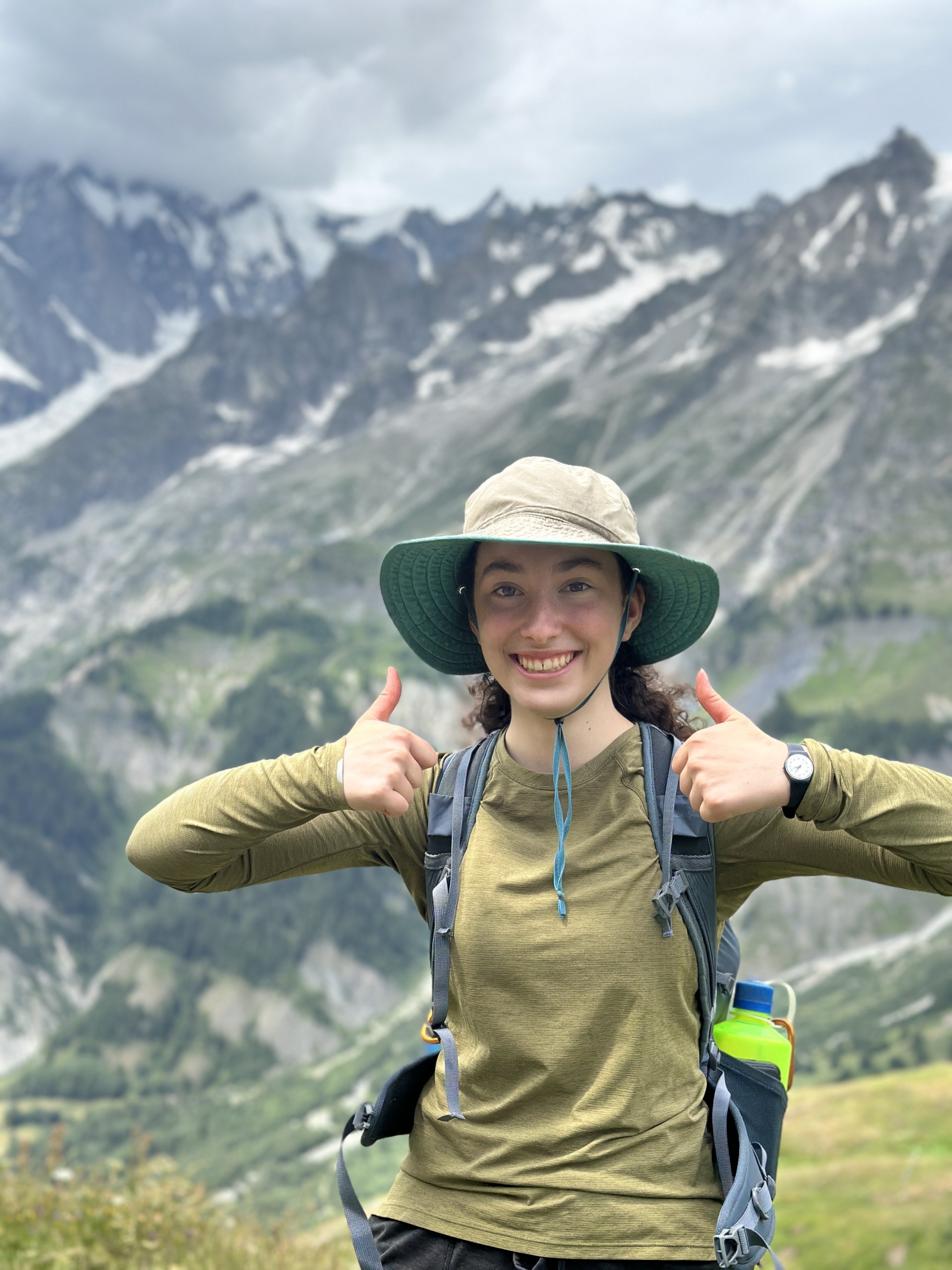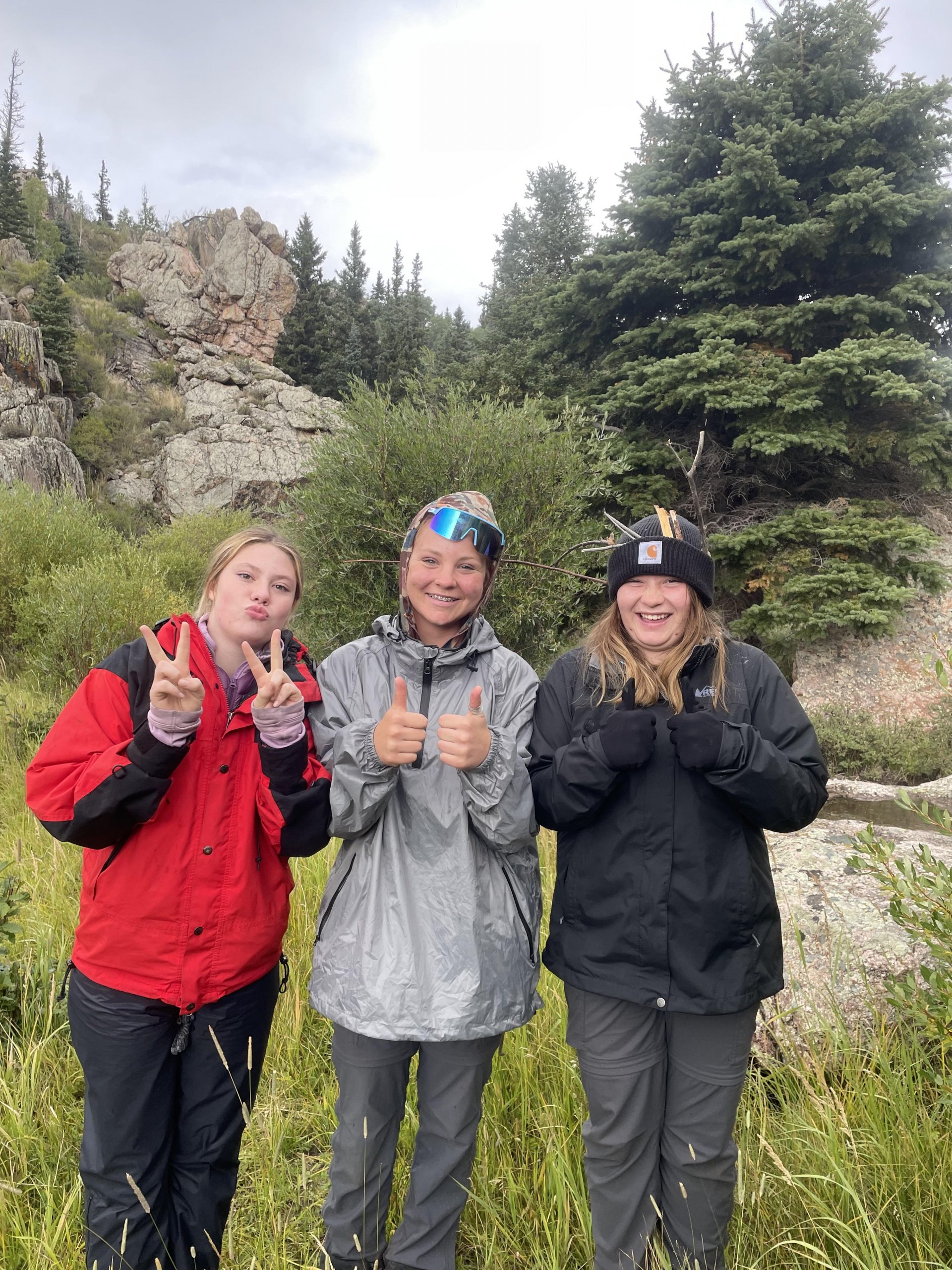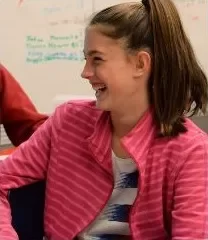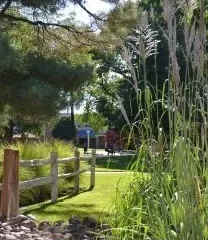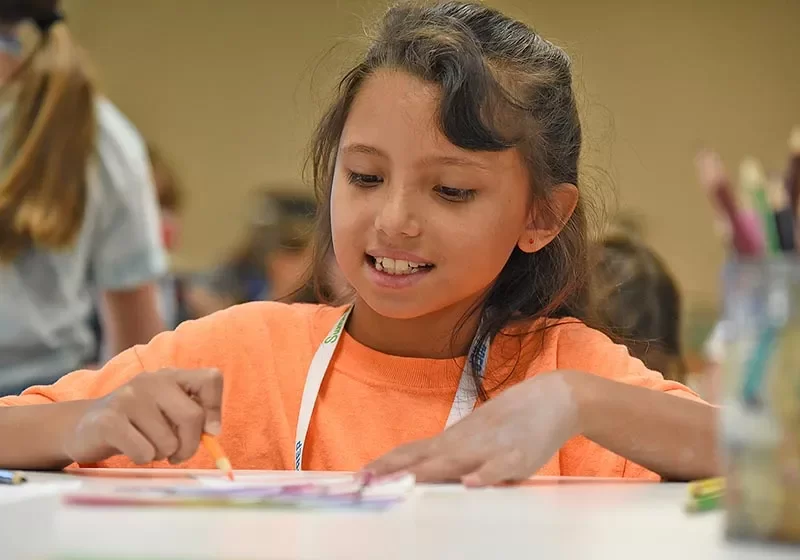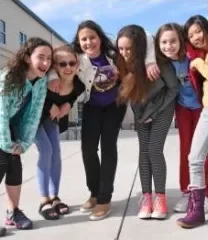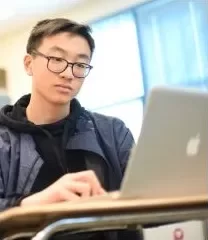The Rewards of Embracing Uncertainty
April 9th, 2024
Hello Sandia Prep Community,
I hope you are enjoying the transformation from winter to spring that occurs in April. I have loved hearing more birds chirping in the morning and seeing the buds on the trees. Plus, the many bulbs we planted in late fall have been coming up. What a beautiful time of year!
I think one of the reasons we love spring is the inevitability of it. Even when things look darkest, we know that, after December 21, the sun will be setting a little bit later each day, the grass will turn greener, baby animals will be born, and we will feel a sense of starting anew. I also think this is why we educators love working in schools. Every year is a chance to try something new and to connect with a whole new group of students. I was talking with a teacher about this recently - someone asked them if they ever found it redundant, teaching the same subject year after year. And they said no, because it’s all about the kids, and every year, the kids are different, so the teaching is different, too. While there may be some predictability in the content, the way students respond will vary based on their interests, the class dynamics, and the relationships developed. So perhaps this balance between inevitability and variety is what makes the work so exciting.
It can be challenging in our lives to lean into unpredictability. When we know what to expect, we feel more comfortable. When my son was younger, he took this feeling to the extreme. He wanted no part of a new experience if he didn’t have a fairly good idea of what would be coming his way. His Montessori preschool was opening up an elementary school, and his class was set to take a field trip to visit the new school so they could check it out. Imagine my surprise when the teacher called me to arrange alternate care for that day because Oliver had told her he wouldn’t be participating. But then I realized it made perfect sense - he had no idea what to expect, and all of the possibilities were just too overwhelming. Once the teacher understood that’s what was going on, she was able to pull him aside and share some specifics about the visit and what they would be doing; this did the trick, and he was fine with the visit.
Of course, as he’s grown, he’s become more comfortable with embracing uncertainty (last year, while he was nervous to study abroad for a semester, he went for it and ended up having what he described as “the best time I’ve ever had in my life”! The reality is we are all on a spectrum in terms of our comfort level with the unknown. A recent book by Maggie Jackson, Uncertain: The Wisdom and Wonder of Being Unsure, explores this topic, arguing that embracing uncertainty can actually improve our mental state, help us grow, and increase our connection with others.
The reason for this is that when we are in a new situation, we often experience a good kind of stress. While leading a life that is constantly stressful is not good, a small level of stress is actually good for us. This good stress creates a situation in which our brain is more open to new data. This improves our memory and our attention span - we’re not on autopilot. Additionally, when we are uncertain about a situation, we are actually better at negotiating or arguing - being able to see other perspectives makes us better at explaining our own perspective. Annie Duke discusses this in her excellent book, Thinking in Bets: Making Smarter Decisions When You Don’t Have All the Facts, as well.
Jackson elaborates on these ideas, saying that being uncertain slows us down, which is a good thing. Working slowly through dilemmas encourages us to uncover errors. In group situations, it encourages collaboration through what she calls “wakeful questioning.” Our groups are actually stronger when we don’t all think the same way. Uncertainty allows us to learn from these differences rather than hide from them.
And while it may seem counterintuitive, uncertainty can actually increase our well-being. Studies have found that people who are able to be curious, rather than fearful, about the unknown tend to have a higher tolerance level for stress. These people don’t shy away from uncertain situations but instead ask questions and explore, thus leading to more engagement at work and higher life satisfaction in general.
When I think about effective teaching and learning, this completely makes sense. When teachers act like a “sage on the stage,” simply spewing information out and asking students to write it down and later regurgitate it on a test, there is not much learning happening. But when students have to explore the unknown and lean into certainty, they develop important skills, such as resilience, collaboration, and creativity. It may seem uncomfortable, but it’s learning at its best.
My husband has told me a story about how when he was in eighth grade, there were two different U.S. history classes. In one class, the teacher simply copied passages from a textbook onto the board and expected students to “take notes” - I put this in quotes because if you’re simply copying from something else, you’re not really taking notes - determining what is important and organizing it in your mind. In the other class (the one my husband was in), they dove in and grappled with big ideas - creating their own civilizations and holding their own constitutional convention. This experiential learning allowed them to work together to ask questions, test ideas, discover flaws, and cement their understanding of the material. At first, he lamented that the other class was “learning more” because they had moved through the textbook more rapidly. As time went on and he spoke with students in the other class, he realized that the other class may have written more down, but they hadn’t truly grasped the concepts in the same way that his class had. The teacher pushed his students to lean into uncertainty, and this allowed for more learning to happen.
I love seeing this in action at Sandia Prep. I recently sat in on a seventh-grade English class where they were about to read some dystopian fiction. Rather than just jumping in and reading, the teacher first asked the students a series of questions about their thoughts on different motifs seen in dystopian fiction. Students asked clarifying questions to try to have more certainty about what she was asking, but the teacher purposely kept it vague so they could go deeper into their ideas. When our Outdoor Leadership Program (OLP) students prepare for trips, they have to embrace a certain level of uncertainty because you never know what nature may bring you. This pushes students to think differently, to explore a variety of “what-if” scenarios, and to be as prepared as possible for those scenarios.
Our seniors have the chance to create their own Senior Capstone Experience at the end of their final year, and we have been encouraging them to truly lean into uncertainty for this. We have some students who are traveling on their own for the first time; others who are creating things through welding, woodworking, and photography; and still others who are diving into professions that interest them, not knowing what they will find. Because they have developed some level of comfort with uncertainty over the years, they are willing to take risks and try new things, thus leading to experiences that will surely be meaningful and filled with learning. What a great way to finish their time at Prep. I know that the skills our students develop through truly embracing uncertainty allow them to achieve great things and have a real impact on their communities during their time at Prep and as they venture beyond our walls.







